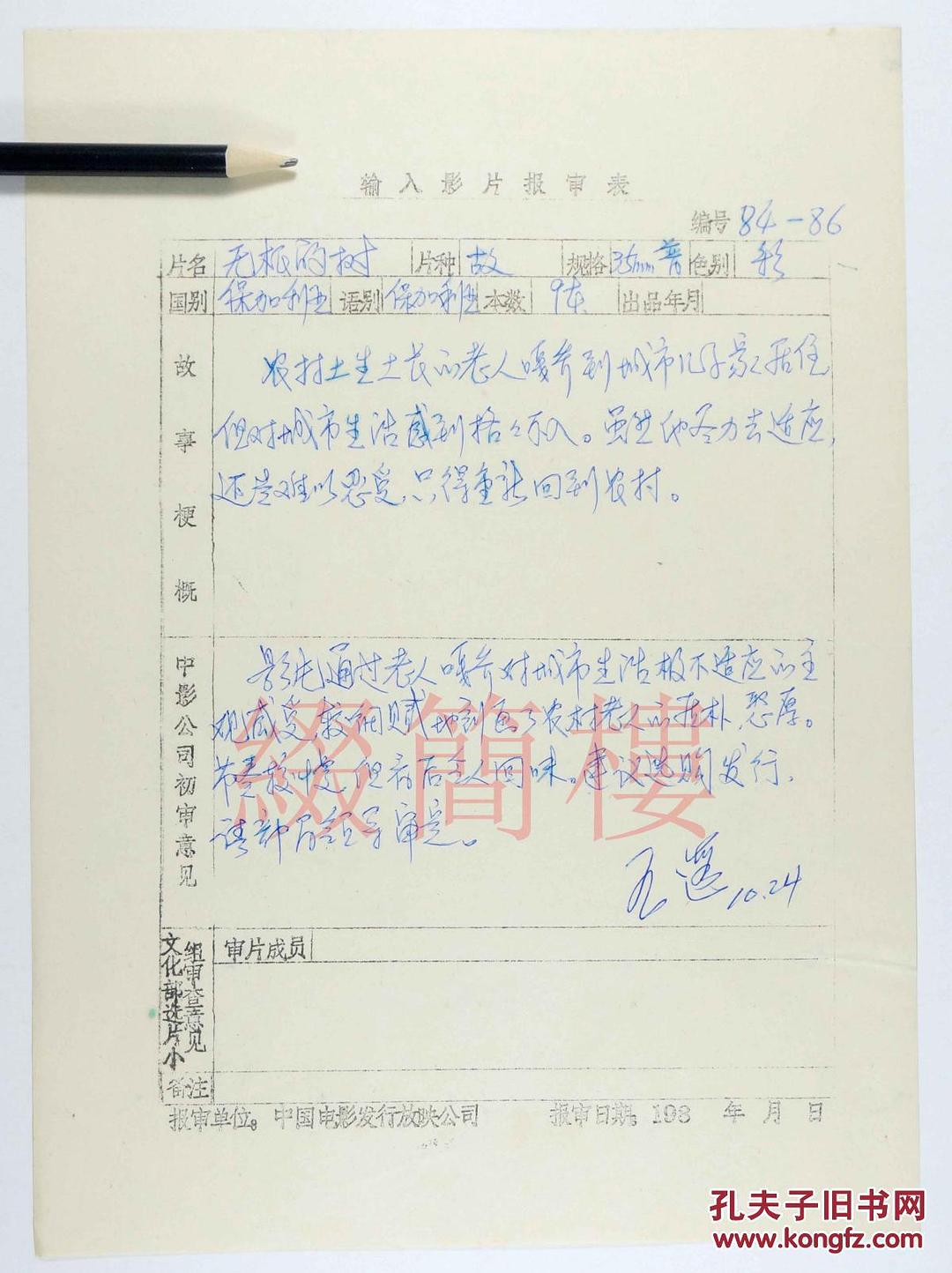剧情介绍
加焦在全国抵抗运动中是一名英勇的游击队员,立下过显赫的战功。全国解放后,他却不以功自傲,默默无闻的当一个普通劳动者,一直为培养梨树新品种而勤恳劳动者。他的儿子吉里尔在城市里当高级工程师,三番五次写信要求父母到城里来和他们住在一起。可是两口子舍不得自己的家园,每次都拒绝了。几年后,加焦的老伴去世了,他为了派遣孤独,终于答应了儿子的要求。来到城里之后,加焦和儿子,儿媳,孙子一起享受着天伦之乐。但是他总觉得自己在城市里的生活好像一棵无根的树……直到有一天,加焦在散步的时候意外遇到了老战友,他们一起参加了“老人之家”聚会。在座谈会上,加焦感慨万千,他想,过去为了革命事业奋不顾身,今天怎么能舒舒服服无所作为呢?他决定回到乡村,继续培养嫁接梨树,让梨树结出又多又大的黄梨来为家乡人民造福。回到儿子家以后,加焦马上收拾好行李踏上归乡的旅程。
Having remained alone in his village house, old Gatyo must move in with his son and daughter-in-law in their flat in the city. They receive him with great understanding and sympathy but cannot find the key to his heart. Torn out of his natural environment and left bewilderingly rootless, this good man cannot adapt himself to the urban way of life. He does not like the mayonnaise he is offered, does not know how to use the lift. The people hurrying in the streets seem to him indifferent, and some even sly and deceitful. He sees the city as a place full of hostile people and inanimate objects. He badly misses the warm human touch of his village. Death is the only possible solution to the tragic conflict of this peasant, crucified between the archaic and the modern, and unable to adapt to the urban lifestyle.
